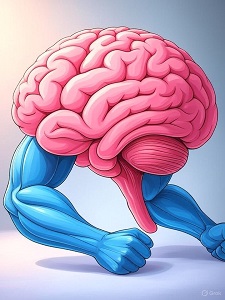
Abstract
Drinking water is essential for life and plays a big role in keeping us healthy. This paper explores how drinking enough water affects the body, including physical health, mental health, and overall well-being. It discusses benefits like better digestion, improved energy, and disease prevention, as well as risks of not drinking enough water. The paper uses simple language to explain scientific findings and offers practical advice for staying hydrated.Introduction
Water makes up about 60% of the human body and is needed for almost every bodily function. From keeping organs working to helping us think clearly, water is vital. Many people don’t drink enough water, which can cause health problems. This paper looks at how drinking water affects our health, why it’s important, and what happens when we don’t get enough. It also provides tips on how to drink enough water every day.The Importance of Drinking Water
- Physical Health Benefits
Drinking enough water helps the body work properly. Here are some key benefits:- Keeps Organs Healthy: Water helps the kidneys remove waste from the blood and prevents kidney stones. It also supports the heart by keeping blood flowing smoothly.
- Improves Digestion: Water helps break down food, prevents constipation, and keeps the digestive system moving.
- Regulates Body Temperature: Sweating helps cool the body, and drinking water replaces what’s lost, especially during exercise or hot weather.
- Supports Skin Health: Staying hydrated keeps skin moist and can reduce dryness or acne.
- Mental Health and Brain Function
Water is important for the brain, which is about 75% water. Dehydration, even mild, can affect how we think and feel.- Improves Focus and Mood: Drinking water can help you stay alert and focused. A 2018 study found that mild dehydration can cause tiredness, confusion, and bad moods.
- Reduces Headaches: Many headaches are caused by dehydration. Drinking water can prevent or relieve them.
- Boosts Energy: When dehydrated, people feel sluggish. Water helps carry oxygen to cells, giving you more energy.
- Weight Management and Metabolism
Drinking water can help with weight control.- Reduces Hunger: Sometimes, thirst feels like hunger. Drinking water before meals can help you eat less.
- Boosts Metabolism: Studies suggest that drinking water can slightly increase the rate at which the body burns calories, especially if the water is cold.
- Risks of Not Drinking Enough Water
Not drinking enough water, or dehydration, can cause serious problems:- Short-Term Effects: Tiredness, dizziness, dry mouth, and headaches.
- Long-Term Effects: Kidney damage, constipation, and a higher risk of chronic diseases.
- Severe dehydration can lead to confusion, fainting, or even death in extreme cases.
The amount of water a person needs depends on their age, weight, activity level, and climate. A common guideline is to drink about 8 glasses (2 liters) of water a day for adults. Active people or those in hot climates may need more. Foods like fruits and vegetables also provide water, but drinking plain water is the best way to stay hydrated.Tips for Drinking More Water
- Carry a reusable water bottle to sip throughout the day.
- Add a slice of lemon or cucumber for flavor.
- Set reminders to drink water, especially during busy days.
- Drink a glass of water before and after meals.
- Choose water over sugary drinks like soda or juice.
Drinking water is one of the simplest ways to stay healthy. It supports physical health by keeping organs working, improves mental focus, and helps with weight management. Not drinking enough water can lead to problems like tiredness, headaches, and even serious illnesses. By making a habit of drinking enough water every day, people can improve their health and feel better overall. Simple steps, like carrying a water bottle or adding flavor, can make it easier to stay hydrated.References
- Popkin, B. M., D’Anci, K. E., & Rosenberg, I. H. (2010). Water, hydration, and health. Nutrition Reviews, 68(8), 439–458.
- Pross, N., et al. (2018). Effects of dehydration on brain functioning and mood. Journal of Nutrition, 148(3), 345–352.
- National Academy of Medicine. (2005). Dietary Reference Intakes for Water, Potassium, Sodium, Chloride, and Sulfate.
- Mayo Clinic. (2023). Water: How much should you drink every day? Retrieved from mayoclinic.org.






